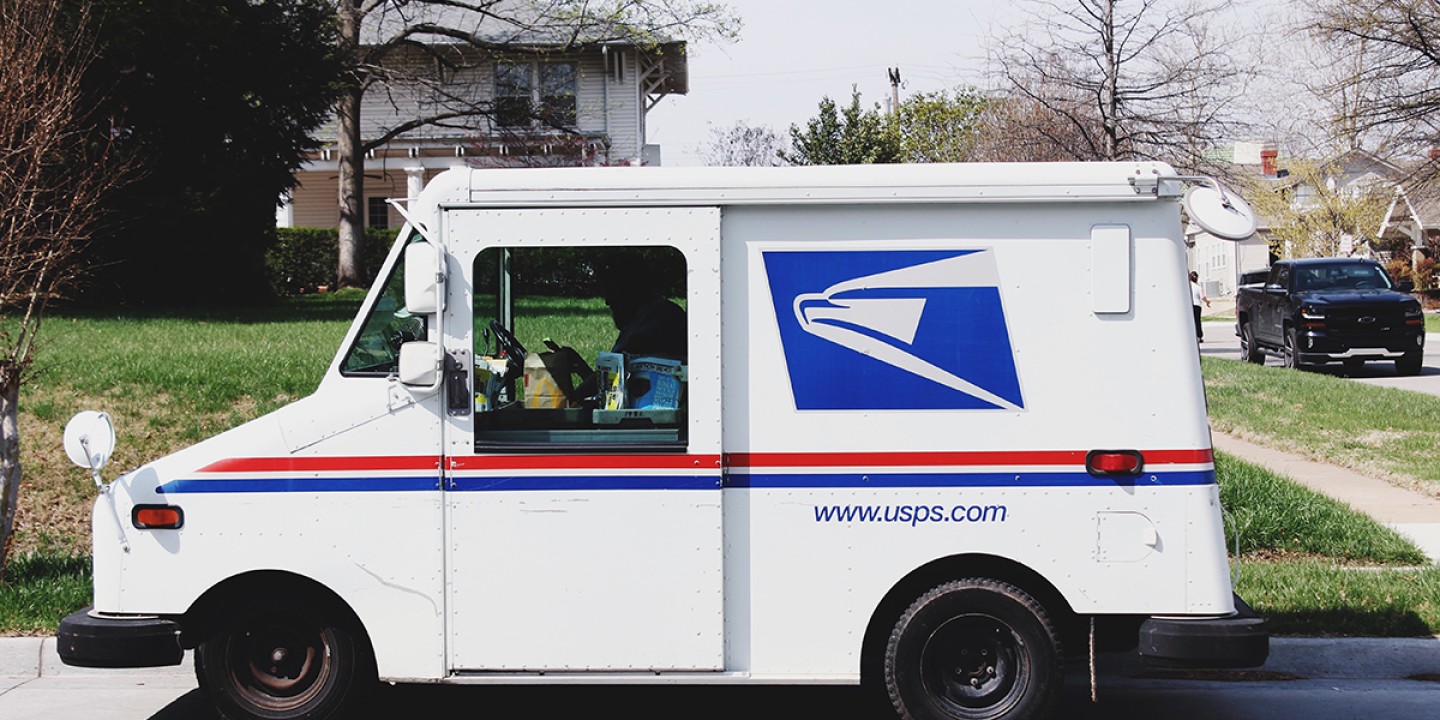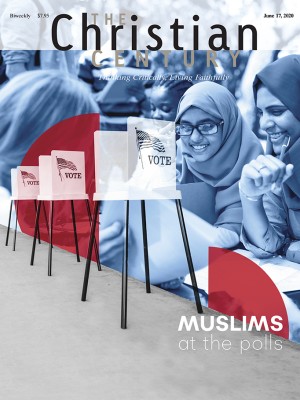Political attacks on the US Postal Service threaten more than just the mail
Democracy, equality, and opportunity are at risk.

Most of us take the US Postal Service for granted. That there is a post office in nearly every little town in the United States, that we can send a letter from anywhere to anywhere for the price of a stamp, that an effective postal system contains some natural supports for democracy—we rarely think about these things.
Yet the postal service is a startling force for democracy, equality, and national unity. It costs taxpayers nothing—the postal service has been self-funded since 1971—yet it connects every person in the United States with every other person, no matter how small or how far-flung their communities. For the same affordable price, every person gets the same service. Meanwhile, the postal service contributes more than half a million high-quality jobs to the economy.
Read our latest issue or browse back issues.
Today the postal service is threatened. The president has called it “a joke.” While Congress approved a relief package for the postal service during the pandemic, the administration has held up this relief—and the postal service has warned that it will run out of operating funds by the end of September. A 2006 law requires the postal service to pre-fund 75 years worth of retiree health benefits over the course of ten years—a cost of approximately $110 billion. It is the only federal agency required to do so. Since then, those opposed to the postal service have often used the prospect of a default on these future costs as part of their argument for dismantling it.
Attacks on the postal service have a long history, and they have nearly always occurred for the same reason: private delivery services want a larger share of the market, and they pressure politicians to eliminate the competition. This time there may be an additional motive as well: the significant role the postal service will play in this November’s federal elections. During a pandemic, mail-in voting is considerably safer than gathering at the polls, and states are expanding their use of mail-in ballots accordingly. Those who don’t want to see the ability to vote expanded this way have responded by sowing doubt about the postal service’s value.
In May more than 100 civil rights groups expressed support for the postal service. They pointed to its work delivering medical supplies to areas hit hard by COVID-19, to its dependability, to the role it will play in November, and to its value as a significant employer of people of color—the postal service is one of the few federal agencies in which the workforce reflects the actual demographics of the United States.
While politicians are once again trying to turn support for the postal service into a partisan issue, 74 percent of Americans say they value and trust it. Attempts to undermine this important and resilient institution can only be thwarted by joining our voices unequivocally with those who are asserting the significance of the postal service to American democracy and equality.
A version of this article appears in the print edition under the title “What the USPS delivers.”





